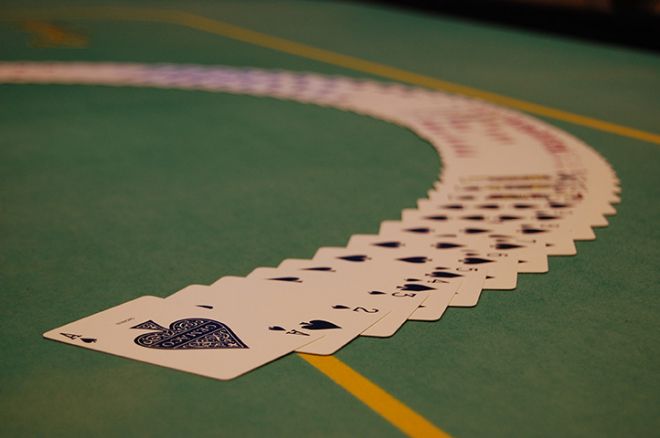Five Common Mistakes When Setting Poker Goals

American businessman W. Clement Stone may not be a name with which poker players are familiar. In fact, it is a name that I myself only ran across recently after searching the internet for the source of an inspirational quote I had heard some time ago. The quote goes like this:
��Always aim for the moon. Even if you miss, you��ll land among the stars.��
Stone is, of course, advocating setting lofty goals for yourself because even if you miss those targets you��ll probably still have achieved something worthwhile. Stone lived by that quote right up to his death in 2002 at the age of 100, having turned an initial $100 investment into millions of dollars during his lifetime. But what has Stone and his famous saying got to do with poker?
People from all walks of life, not only poker players, set themselves targets and goals for which to aim. At the moment I am dieting with the goal to reduce my weight back to what it was when I was in my early 20s. A few years ago, a friend of mine set himself the goal of ditching his job and becoming a full-time freelance writer, something he achieved with relative ease. Others may have more immediate goals such as going a whole day without smoking a cigarette, for example.
Having been around long enough, I��ve read hundreds of poker blog entries (being responsible for a few myself), forum posts, and other articles that illustrate a number of common mistakes players make when setting poker goals. I��ve also made these very mistakes, so I thought it would be a good idea to share some of them with you so that you don��t fall into the same trap.
Here are the five most common mistakes I have seen made when players try to set poker goals:
1. Setting Goals Without a Plan of How to Achieve Them
I will never mock anyone who sets ambitious targets, regardless of how unlikely they are to achieve them. I know microstakes players who dream of winning a World Series of Poker bracelet or eventually playing $100/$200 cash games, and good luck to them.
What does grind my gears, however, is when people set such goals with no backbone to them. For example, a player says ��I want to win $50,000 this year from poker�� but then has no idea how he is going to do it. In truth, setting monetary goals is usually a bad idea �� more on that below �� but that aside, that player should be working out what path he should take in order to achieve his stated goal.
Will he play cash games or tournaments? How often will he play? When will he move up in stakes or down if needed? These and other questions have to be answered in order to map out a plan for achieving his goal.
2. Setting Monetary Goals
Let��s get something straight �� you have only partial control over how much money you��re going to win in poker. People like to set money-related goals because they are easy to measure and, after all, we all like money! The problem lies in the fact that Lady Luck necessarily plays a massive part in affecting how much you win.
While it is true that your skill level also has an influence over how much you win, you could still be the next Daniel Colman, play perfect poker for a year, and still come out with less money than you had when you began.
Setting goals that you have only partial (or little) control over sets you up for failure and nobody like to fail. What��s worse, you may find yourself stopping sessions short in order to protect a win, or playing longer to chase a loss, neither of which are ideal ways to play.
3. Setting Goals to Play a Certain Number of Hands/Hours
These type of goals are similar to monetary goals in that they force you to aim for a number. For some people trying to play a specific number of hands or hours is a good way to increase their volume, but you have to be careful not to let your quest for hitting the target take over and negatively affect your decision-making at the tables.
It will be far more damaging to you if you try to fit in some extra hands per session or play for longer than you are able to just so you can hit your target. I��ve been guilty of this mistake often, and I have almost always paid the consequences.
4. Only Setting Long-Term Goals
A large number of players will start 2015 with a poker-related goal that will end on December 31, 2015. If they hit this target then great, but what if they fall short? Are they failures?
By setting smaller targets to hit throughout the year, you give yourself a better chance to enjoy a few successes along the way. Even if you miss out on hitting your main goal, you will still have some sense of achievement that can help motivate you going forward.
5. Not Setting Goals That Are Appropriate for You
If you are honest with yourself and are able to avoid letting the chasing of a number distract you from playing optimally, then go ahead and set those kinds of goals. For the mere mortals among us, try setting goals that you have complete control over such as only playing when you��re 100% up for the challenge, playing without distractions, taking more notes on players, or learning a new game.
It��s all about finding what is right for you. but remember to always aim for the moon, because even if you miss, you��ll land among the stars.
Get all the latest PokerNews updates on your social media outlets. Follow us on Twitter and find us on both Facebook and Google+!








